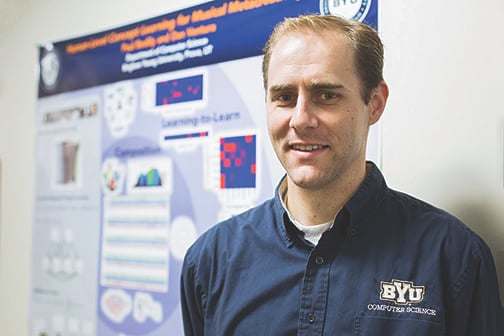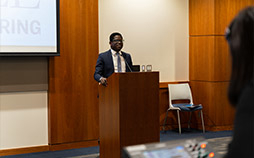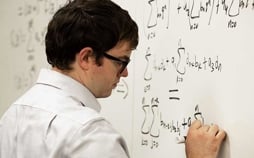Bringing it Home
It wasn’t easy for Daniel Yirenya-Tawiah to come to BYU from Ghana, but the blessings have completely outpaced his expectations.
January 2018

Suppose you could train a computer to compose music that actually sounds good. Far-fetched?
Paul Bodily, who’s earning his PhD in computational creativity, doesn’t think so. Helping artificial intelli-gence gain the ability to compose music—good music— is the subject of his research.
“I’m very interested in how people conceptualize the music composition process—how they come up with chord progressions, melodies, and lyrics that evoke a powerful feeling,” he says. “And I’m letting my intuition guide an effort to teach a computer to do that.”
Bodily, who plays a few instruments, composes music himself, and sang with BYU Vocal Point as an undergraduate, previously earned a bachelor’s degree in bioinformatics and a master’s in computer science. Much like genetics, he says, music consists of sequential data. He hopes he can create artificial intelligence that can analyze the data underlying music and create something uplifting with it. “Music,” he says, “is something that brings people together.”
Along the way to earning his degrees, Bodily has benefited from donated funds in the form of scholarships and mentorships and, most recently, research grants. “It’s been a huge boost to my confidence,” he says. “I can focus on my research, not on a second job.”

It wasn’t easy for Daniel Yirenya-Tawiah to come to BYU from Ghana, but the blessings have completely outpaced his expectations.

The end goal of a BYU education, James Lee says, is to give students chances to apply what they’ve learned. For him, that happened at the Simmons Center for Cancer Research.

Mathematics student Jonathan Hales says it was mentored learning that helped him develop a method that researchers can use to analyze equations.